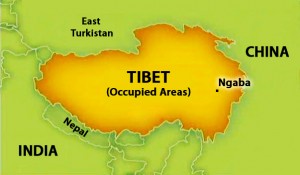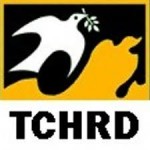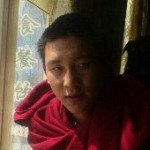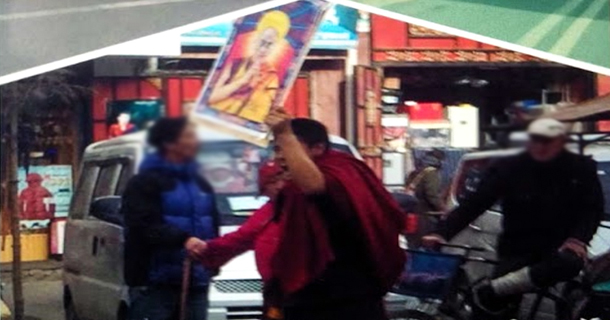January has seen no let-up in the crackdown at Kirti Monastery in Ngaba county in the Sichuan Province of Tibet. Following the arrests of two monks in December, the Chinese authorities have considerably increased their security forces in and around the area.
The first of the arrests was of 20-year-old Lobsang Lungrig, on December 27, for no known reason. Lungrig’s arrest came just hours after that of 21-year-old Lobsang Trinley, also a monk from Kirti monastery, for staging a peaceful, solo protest on the street. He was severely beaten and arrested within minutes of his protest. No news of either’s condition or whereabouts is known.
Confirming the facts of these and other arrests is extremely difficult, as severe restrictions on internet and phone connections have been imposed. There is a Tibet-wide crackdown on communications as the Chinese authorities attempt to prevent news from reaching the outside world.
 Currently, there is a heavy clampdown by security in Ngaba and sources reveal that a large number of armed Chinese security forces and police have been deployed on the streets since the protests. Major roads leading to Ngaba County have been blocked and the movements pf local Tibetans, including monks from Kirti, are restricted. There are also reports that many Tibetans have disappeared or been detained after staging protests to express their solidarity with Trinley following his arrest.
Currently, there is a heavy clampdown by security in Ngaba and sources reveal that a large number of armed Chinese security forces and police have been deployed on the streets since the protests. Major roads leading to Ngaba County have been blocked and the movements pf local Tibetans, including monks from Kirti, are restricted. There are also reports that many Tibetans have disappeared or been detained after staging protests to express their solidarity with Trinley following his arrest.
 The Tibetan Centre for Human Rights and Democracy (TCHRD), a Dharamsala-based human rights group, has condemned the actions of the Chinese authorities and called on them to release the two monks. “TCHRD condemns the actions of Chinese paramilitary forces that have engaged in unnecessary violence and disproportionate use of force by beating up local Tibetans who had gathered there to peacefully express their discontent and aspirations. TCHRD calls on the local Chinese authorities to immediately release Lobsang Trinley from detention since he was merely exercising his right to peaceful assembly and freedom of expression. There is no legitimate ground for his secret detention. Furthermore, the local Public Security Bureau officers must make public the reasons behind the arbitrary detention of Losang Lungrig who was picked up from his monastery without any reason,” said TCHRD.
The Tibetan Centre for Human Rights and Democracy (TCHRD), a Dharamsala-based human rights group, has condemned the actions of the Chinese authorities and called on them to release the two monks. “TCHRD condemns the actions of Chinese paramilitary forces that have engaged in unnecessary violence and disproportionate use of force by beating up local Tibetans who had gathered there to peacefully express their discontent and aspirations. TCHRD calls on the local Chinese authorities to immediately release Lobsang Trinley from detention since he was merely exercising his right to peaceful assembly and freedom of expression. There is no legitimate ground for his secret detention. Furthermore, the local Public Security Bureau officers must make public the reasons behind the arbitrary detention of Losang Lungrig who was picked up from his monastery without any reason,” said TCHRD.
There is a history of unrest at Kirti Monastery. Twenty two Tibetans were killed by Chinese security forces during a peaceful protest outside the Monastery on March 16, 2008. This was the start of the current cycle of repression in the monastery and Ngaba area. In February the following year, a young monk from Kirti named Tapey self-immolated, the first of the spate of 135 self-immolations that have occured since in Tibet. Tapey survived and is believed to be still in detention.
In April 2011, following the second self-immolation, also at Kirti – 20-year-old Phutsong – Chinese authorities raided the monastery, killing some Tibetans, taking away hundreds of monks and sending them for “political re-education”, and beating up and detaining local Tibetans who sought to protect the monks. During the summer of 2011, while the Chinese officials called the situation “normal”, a report surfaced from Tibetan sources calling the monastery “a jail filled with monks”. It claimed that the monks were not allowed to leave their quarters after 8 pm, that the monastery’s medical facilities were shut down and the Chinese authorities had constructed walls around the monastery.
Each year, the number of protests, detentions, arrests and self-immolations has risen. Despite the difficulties in obtaining news due to the communications crackdown, this increase in unrest is well documented.
Kirti Monastery was founded in 1472 and is one of the leading Tibetan Monasteries. Kirti Rinpoche, the exiled head of the monastery, said during a visit to London, “the Chinese authorities are making baseless accusations without evidence instead of addressing legitimate Tibetan grievances. The self-immolations emerge from the unbearable oppression imposed by the Chinese authorities and their policies undermining Tibetan religion and culture. Not only do they seek to repress the truth in Tibet, but they sought to do so even in the European Union, where they pressured officials not to meet me despite the fact that it is my understanding that freedom of expression is one of the most cherished European values.”






 Print
Print Email
Email